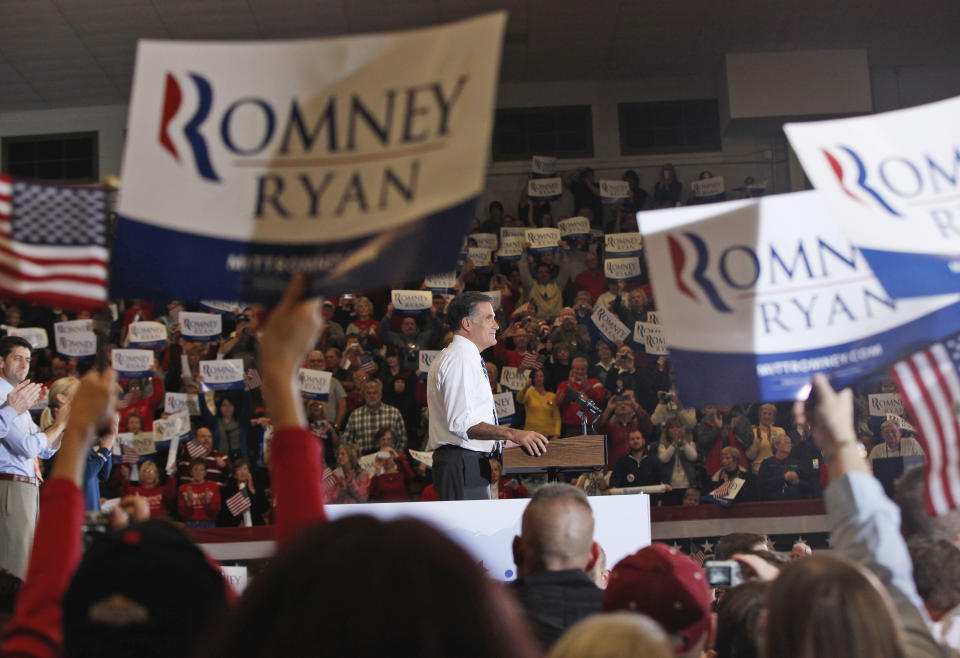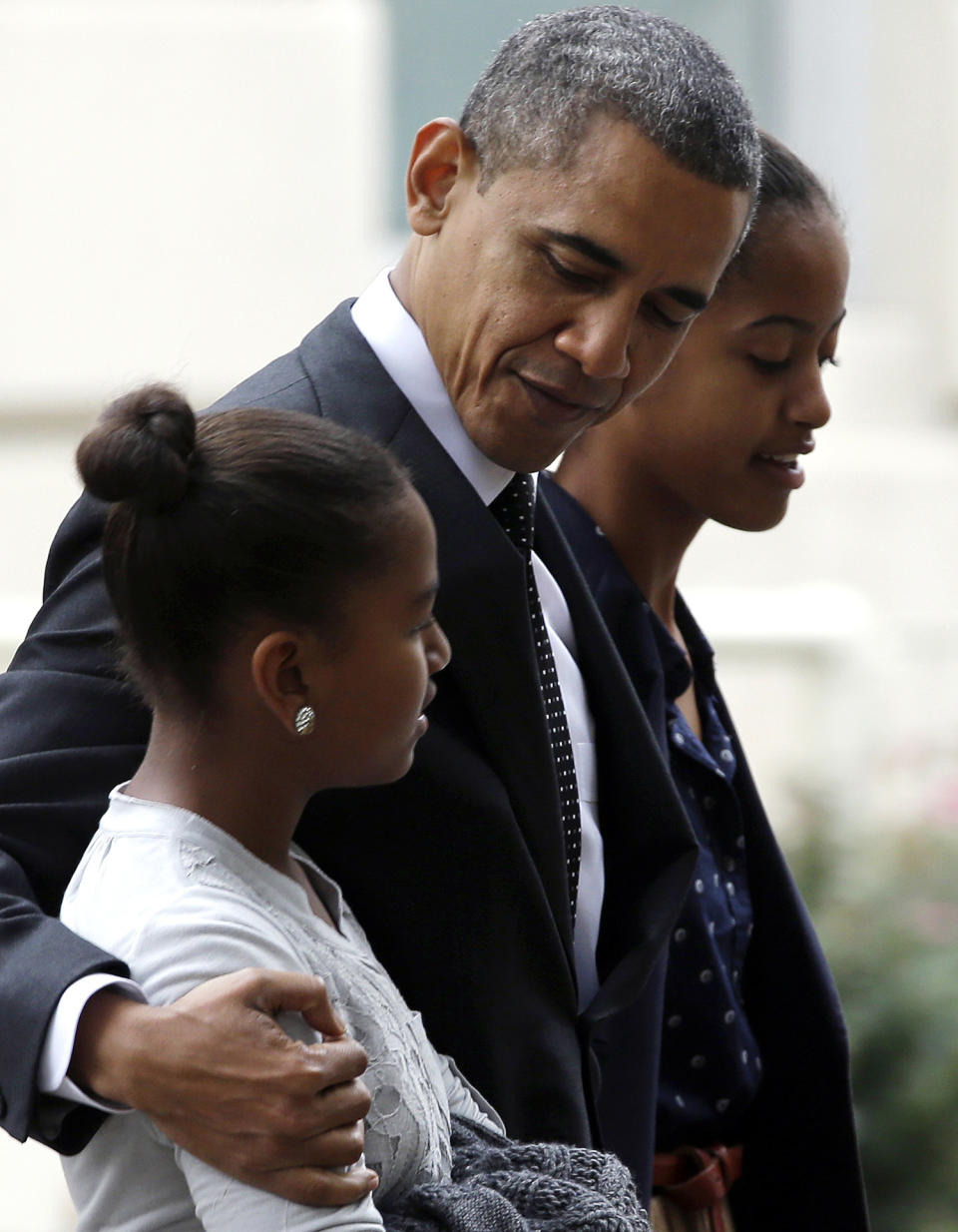Endorsements flood in, but do voters care?
WASHINGTON (AP) — In one October weekend, Republican Mitt Romney and President Barack Obama each scored a victory from a major newspaper in the all-important state of Florida. On one end, the Tampa Bay Times endorsed Obama, praising him for steady economic progress and sure-footed foreign policy. On the other, the Orlando Sentinel backed Romney, describing him an able and tested leader even as it frowned on his conservative statements about social issues.
Roughly halfway between the two along Florida's coveted, swing-voting I-4 corridor, Lorrie Walker shrugged.
"I don't think it has any influence at all," said Walker, an undecided voter in the town of Lakeland.
A public relations professional, Walker says she gets why both candidates are plugging their endorsements. But she doesn't think it works, primarily because newspaper editorial pages often have a reputation for leaning liberal or conservative. "I discount it, because I think, 'Of course they're endorsing that candidate,'" she said.
As the campaign nears its nail-biting conclusion, both campaigns are trumpeting a flood of newspaper endorsements — and using them as a stamp of approval in television ads and emails. On Sunday alone, Obama's campaign touted 10 endorsements he picked up, including the Detroit Free Press and the Toledo Blade. Fourteen papers, including the Florida Times-Union and the Richmond Times-Dispatch, gave their nod to Romney.
Nowhere do the candidates crave a newspaper's approval more than in the handful of battleground states that will decide the next president.
Obama minced no words in an interview he gave Tuesday to the Des Moines Register as he courted its support.
"I want your endorsement," Obama said. He added: "You'll feel better when you give it."
They didn't. Instead, on Saturday, the influential Iowa paper backed Romney and said he "offers a fresh economic vision."
But who reads newspapers anymore? For all the energy spent winning and then advertising endorsements, do they make any difference?
"The short answer is no," said Jack Pitney, a political scientist at Claremont McKenna College. "But at this stage in the campaign, you're looking for every edge you can get, even if it's a microscopic edge."
Newspaper circulation has steadily declined in recent years, from almost 47 million per day in 2004 to barely 40 million last year, according to the Newspaper Association of America. While there's little data to show whether voters listen to what their local paper has to say about elections, there is some evidence that endorsements from people — like celebrities and other politicians — sometimes have a minor effect. In January, a Fox News poll showed 29 percent of voters would be more likely to vote for a candidate endorsed by former President Bill Clinton. Seventeen percent said the same about former President George W. Bush.
At this stage, campaigns, more than anything, want to establish that momentum is swinging in their candidate's direction. With the debates and the nominating conventions over, that's getting increasingly tough to do. So along with poll numbers and fundraising totals, newspaper endorsements are one way to show that a candidate is benefiting from a burst of enthusiasm.
Even if candidates don't know exactly when an endorsement is coming, they generally have a sense of which way a newspaper is likely to go, based on endorsements from previous years and editorials the paper has written about the candidates earlier in the race. But readers often choose newspapers that match their views about the world, political strategists say, and so it is likely readers are already supportive of the candidate their paper chooses and won't be swayed.
One exception: Endorsements that seem to fly in the face of a newspaper's perceived political persuasion.
"If a traditionally left paper endorses Romney, or a traditionally right paper endorses Obama, that matters, because people go, 'Huh, that's curious,'" said Dan Hazelwood, a Republican strategist.
State and local races are the other scenario where endorsements could play a larger role. Voters often pay less attention to races for Congress, city council or county commissioner than they do about the White House race. With less information to guide their decision, they may turn to a local paper whose reporters they expect have been closely tracking the issues.
"This is what they do for a living, so they usually have the best information," said Cody Slater, a 23-year-old voter in Petrolia, Pa., who is undecided in the presidential race.
Still, not all newspapers want to get their hands dirty by wading into messy political fights. Count the Milwaukee Journal Sentinel among them; The paper announced Friday it had decided to "get out of the political endorsement business."
"This loss of credibility is a high price to pay to conjure a ghost of newspapering past that we have come to believe is of little value today," wrote editorial page editor David Haynes. "Endorsements are a relic of a time when every town had more than one newspaper, of a time long before the wide river of commentary now available to anyone with a smartphone."
___
Reach Josh Lederman on Twitter at http://twitter.com/joshledermanAP
___
Associated Press news survey specialist Dennis Junius contributed to this report.


